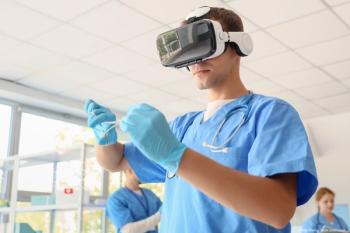
|Articles|March 1, 2002
Documenting the medical encounter with speech recognition
Physicians are faced with the need to document clinical examinations for ongoing clinical care in addition to increasing requirements for billing, as a deterrent against claims of fraud and abuse and for malpractice protection. With the typical medical encounter often less than 10 minutes, only a small fraction of this time can be dedicated for documentation purposes.
Advertisement
Newsletter
Don’t miss out—get Ophthalmology Times updates on the latest clinical advancements and expert interviews, straight to your inbox.
Advertisement
Latest CME
Advertisement
Advertisement
Trending on Ophthalmology Times - Clinical Insights for Eye Specialists
1
MeiraGTx Licenses complement-targeted geographic atrophy program from ZipBio
2
Metformin use associated with reduced incidence of intermediate AMD
3
Last year in glaucoma at EnVision Summit 2025
4
Looking back at the 2025 EnVision Summit
5





























